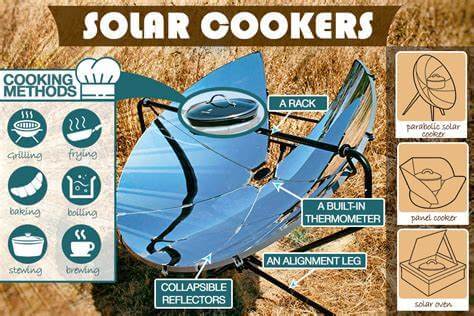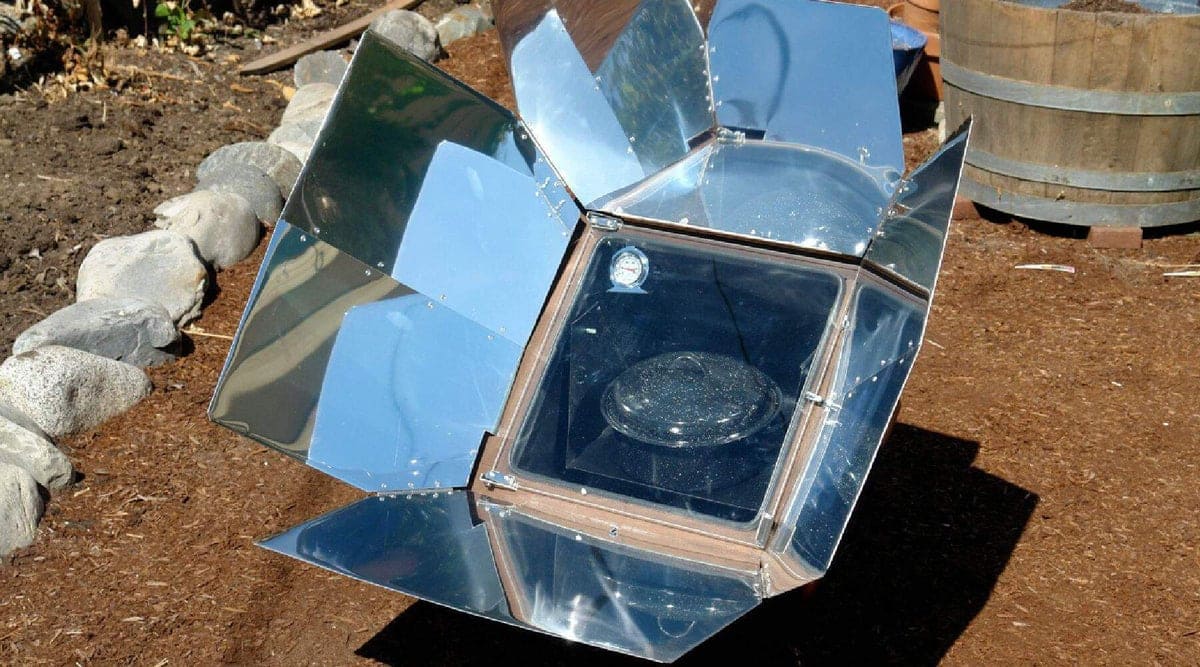While solar cookers offer an eco-friendly way to prepare meals, there are undeniable disadvantages to consider. Let’s dive into the two main challenges users might face with solar cooking.
1. Dependence on Weather Conditions
Despite the many advantages of solar cookers, including their use of renewable energy and cost-effectiveness, they’re significantly impacted by one uncontrollable factor: the weather.
| Weather Condition | Impact on Solar Cooking |
|---|---|
| Sunny and Clear | Optimal cooking condition |
| Partly Cloudy | Reduced efficiency, longer cooking times |
| Overcast or Rainy | May not function, alternative cooking methods needed |
As depicted in the table above, solar cookers require direct sunlight to function effectively. On cloudy or rainy days, their efficiency drops significantly, which can be a major inconvenience if you’re planning a meal around this cooking method. Moreover, in regions with unpredictable weather or long winters, a solar cooker may not be a reliable primary cooking device.
2. Longer Cooking Times
Another disadvantage of solar cookers is the time it takes to cook food. Unlike traditional methods of cooking that offer quick heat up times, solar cookers often require more patience from users.
- Preheating – Solar cookers need to be preheated before use, which can add extra time to the cooking process.
- Cooking Duration – Depending on the type of food and intensity of the sun, cooking can take several hours.
- Attention to Sun – Users may need to periodically adjust the cooker to follow the sun’s path, which adds to the hands-on time.
This extended cooking time might not be ideal for individuals with a busy lifestyle or for those who need to prepare meals quickly. It’s important to plan ahead when using a solar cooker and consider additional time for setup and adjustments throughout the cooking process. What’s more, in comparison to gas or electric stoves that have consistent cooking temperatures, the temperature inside a solar cooker can fluctuate, leading to uneven cooking if not carefully monitored.

Credit: www.javatpoint.com
Frequently Asked Questions On What Are The 2 Disadvantages Of A Solar Cooker?
Can Solar Cookers Work On Cloudy Days?
Solar cookers rely heavily on direct sunlight; their efficiency drops significantly during cloudy conditions, as they cannot harness diffused sunlight effectively.
Is A Solar Cooker Expensive To Maintain?
Long-term maintenance costs for solar cookers are generally low; however, initial setup costs can be higher compared to traditional cooking methods.
Do Solar Cookers Affect Food Taste?
Food cooked in solar cookers may have a different taste since it’s cooked at lower temperatures for longer periods, potentially resulting in enhanced flavors.
How Portable Are Solar Cookers?
While some solar cooker designs are lightweight and foldable for easy transport, others are more stationary due to size and material, affecting portability.
Conclusion
In summary, solar cookers have their place in an environmentally conscious lifestyle. However, their dependence on weather conditions and the longer cooking times they require are two significant disadvantages that cannot be overlooked. Before investing in a solar cooker, consider your personal circumstances, cooking needs, and whether you can accommodate these potential limitations.

